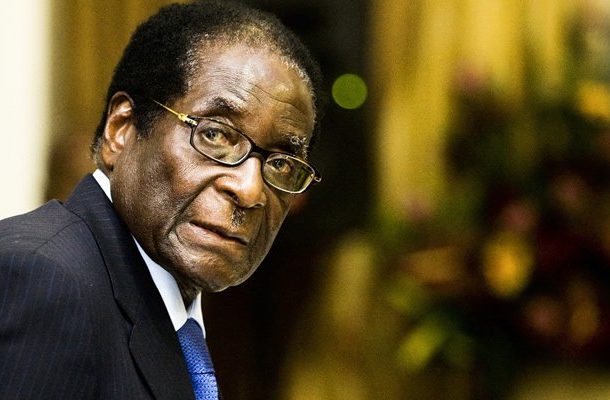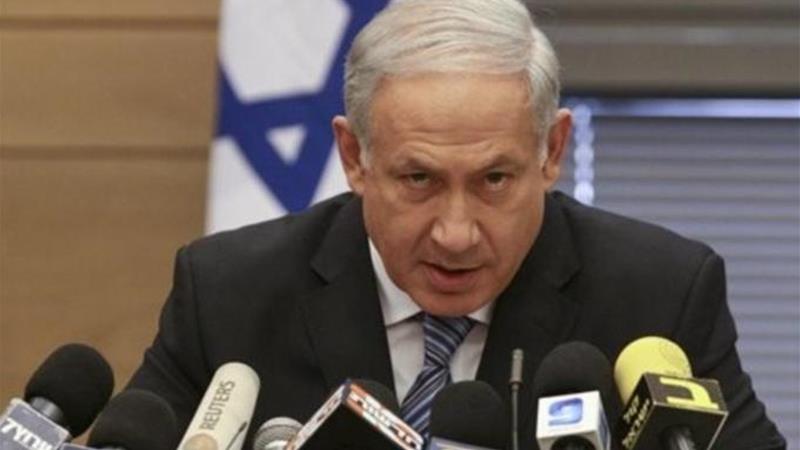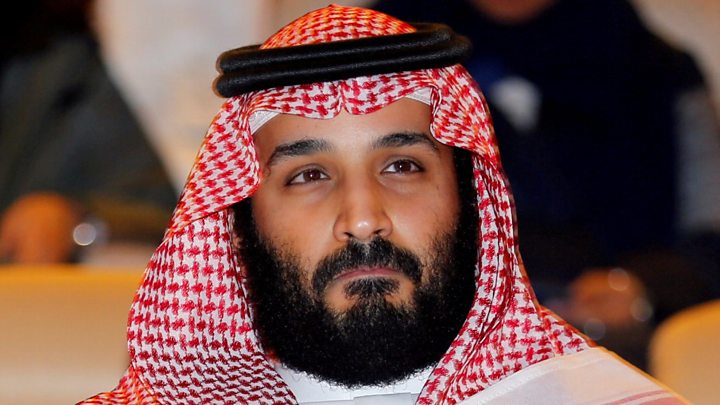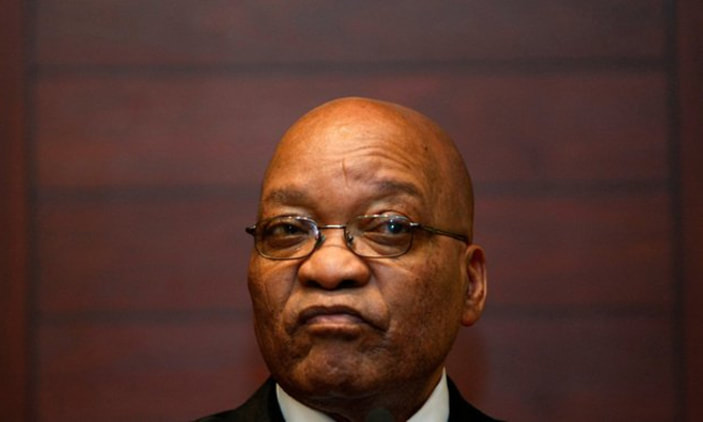|
Think of the Caribbean and the images emerge – clear blue waters, linen-soft sands. And more history than you can shake a guide book at in this region's pirate-filled past. How about a pirate-filled present in the new disguises of dubious directors, shadowy shareholders, and hidden assets?
Anguilla, Barbados, the Caymans, the Bahamas and the British Virgin Islands may offer sunny vacations and easy living. However, the famous Panama Papers disclosure of 2015 exposed tens of thousands of offshore companies to scrutiny. It showed how these paradise islands also host shady firms used by the wealthy to evade taxes or even hide criminal activities. This is a different kind of "escape" than the glossy holiday brochures have in mind. Offshore accounts add to the intrigue of the Caribbean islands and their attraction for the coyly rich. Such centers exist on all continents, but the Caribbean hosts a large cluster of them. Why so? The rich history of the Caribbean's place in the offshore world has much to do with the shaky economies of these island nations. In the British Virgin Islands, 51.4 percent of government revenues come from company incorporation fees. Lacking natural resources or high-tech centers, the BVI government would have to rely on tourism to generate economic success. Instead, it mines a treasure trove of administrative fees by hosting offshore accounts. It is the offshore companies that fuel the economic engines of many Caribbean islands. This makes it hard and impractical for their state legislatures to reign in or even regulate offshore-company recklessness. To penetrate the murky offshore world requires investigators or journalists to tap sources within these nations' company registries and offshore registering companies. This tactic unleashed the Panama Papers. A whistleblower at Mossack Fonseca, a law firm and registering company in Panama, leaked tens of thousands of internal documents to the German journalist Bastian Obermayer and his colleagues at Suddeutsche Zeitung newspaper. Unfortunately and for many reasons, legislatures across the world have done little to penetrate further the dangerous secrets lurking in offshore accounts that hide trillions of dollars. Until governments enact stringent new laws on a global scale, expert journalists, and rare whistleblowers willing to risk their livelihoods must fight alone in the battles for transparency and accountability.
1 Comment
On May 14, the hammer of a Sotheby's auctioneer dispatched Claude Monet’s Meules for $110.7 million, a world record sale for an Impressionist painting. Two days later Jeff Koon’s Rabbit broke the auction record for a work by a living artist, going for $91 million.
Insane piles of money, mysterious buyers whispering down phone lines – welcome to the glamour of the art auction-house. But could there be any shady dealing behind such anonymous, multi-million dollar deals? You bet there is. There's no reason to infer that Meules and Rabbit were anything but honest and exciting art transactions. But the same traditional auction procedures are also used to launder colossal amounts of dirty money. The popular media often documents this use of art for evil. Riviera is a current TV series set on that millionaires' playground, the Cote d’Azur, in southeast France. In it, Julia Stiles plays Georgina Clios, who discovers that her late husband acquired his billions, and his art collection, in an underworld of violence, secrets, and murder. Prestigious art houses like Sotheby’s and Christies offer tempting anonymity for those trying to game the markets. Auction houses do not require an art broker to disclose who is bidding on a lot. In a typical shady case, Russian billionaire Dmitry E. Rybolovlev was outed as the buyer of a Toulouse-Lautrec painting of two women on a bed, Au lit: Le Baiser. It went up for sale at Sotheby’s in London in 2015, and Rybolovlev bought it through a Swiss dealer, Yves Bouvier. Rybolovlev, a mastermind of offshore shell companies, is now in a legal battle with Bouvier over issues that include money from the Sotheby’s sale. Rybolovlev’s story typifies anonymity, but that of Edemar Cid Ferreira exposes laundering. The US Justice Department used civil forfeiture to seize Jean Michel Basquiat’s 1981 painting Hannibal and later returned it to Brazil. Ferreira is a former Brazilian banker who was convicted of money laundering and other offenses. He had smuggled Hannibal into the US from Brazil, via the Netherlands, with shipping documents that valued the contents at $100. Quelle horreur! The painting had been appraised at $8 million. (The abstract expressionist Hannibal features a red dollar sign at the bottom of the canvas – a neat touch of prophetic irony). At present, US lawmakers are slowly drafting legislation to strip away at least some of the secrecy associated with shady art deals. One can never know what lies behind any mysterious smile on a multi-million dollar canvas. Isn't that so, Ms Mona? One would least expect the United States to be home to some of the most egregious corruption in recent years. Yet the election of Donald Trump to the presidency has rocketed a businessman in power who has relied on hush payments, tax evasion, and more bribes to maintain his sleazy success.
Donald Trump should release his tax returns to stick to a norm of transparency to the American people and try to prove otherwise that he has not engaged in dodgy tax evasion and other nefarious practices. Yet on April 16, Trump’s personal lawyer William Consovoy sent a letter to the Treasury Department, accusing a House committee of unlawfully retaliating against a political opponent, attempting to delay the release of the tax returns. In a rather bizarre and problematic moment in the letter, Consovoy likened Trump to the African American struggle for rights, stating: “What if, during the height of the civil rights movement, the Democrat-controlled House tried to intimidate African-American leaders by requesting their tax returns?” Consovoy likened this to current attacks by Democrats on Trump. This question was jarringly insensitive given the fact that Trump has historically echoed white supremacist views, with undeniably racist undertones. Unfortunately, the fight to release Trump’s tax returns will probably last beyond the 2020 presidential election, denying voters the right to assess his trustworthiness and “decency” as a candidate. We will continue to lobby hard for transparency in the highest office in the free world. Former president of Zimbabwe Robert Mugabe is to face corruption charges before a committee of lawmakers. The committee has questions about the alleged exploitation of the country's Marange diamond fields.
Mugabe ruled Zimbabwe from 1987 to 2017, when he was kicked out of power and replaced by Emmerson Mnangagwa. The new leader has vowed to tackle the rampant corruption that plagues Zimbabwe. In 2016 Mugabe said in a speech, “We have not received much from the diamond industry at all ... I don’t think we’ve exceeded US$2 billion or so, and yet that area has earned well over US$15 billion or more”. Parliamentarians say they want to ask Mugabe the basis for his $15 bn figure. He has often been suspected of siphoning off the diamond-field profits. In 2017, an NGO report said billions of diamond dollars had ended up in the pockets of the military, intelligence chiefs, and the president. The NGO, Global Witness, exposes corruption and abuse of the environment. Jonathan Moyo, a former cabinet minister, said Mugabe’s ruling party even used diamond revenues to pay for political T-shirts and hats. The merchandise, for the 2013 presidential elections, amounted to $70 million, he said. A former finance minister described diamond companies operating at Marange as a “cabal of rogue elements.” Tendai Biti said the cabal passed $2 billion a year to Zimbabwe's ruling elites. The country isn't the first in Africa to suffer endemic corruption in mining and natural resources. As we previously reported, a corrupt executive elite mismanaged Zambia’s state-owned mining firm ZCCM-IH. The evidence for the corruption was in leaked documents we call the Safari Papers. We received them from contacts seeking to expose corrupt semi-state companies in Africa. What’s the next step with Robert Mugabe? No date has been set for the committee hearing and it's unclear how far lawmakers can press the ailing 94-year-old former dictator. We predict an underwhelming verdict from Emmerson Mnangagwa’s government. Despite its mantra of transparency and justice, we're likely to see neither for the man who stole billions from his people. Zimbabwe has a per capita GDP of $600, the third lowest in the world. And there's a footnote. The unloved former first lady Grace Mugabe is also under investigation for ivory poaching. ISRAEL’S Prime Minister Benjamin ("Bibi") Netanyahu faces four serious accusations of corruption. Police suspect him of accepting $300,000 worth of gifts over 10 years and of colluding with media tycoons to win favorable press coverage. Then there was an aide who tried bribing a judge to sidetrack a court case against Netanyahu’s wife, Sara.
On 13 February 2018, the police recommended that the state prosecutor should indict Netanyahu. They said enough evidence exists for charges of bribery, fraud, and breach of trust in the two main cases. Case 1000 probes Netanyahu's acceptance of large benefits from businessmen. These include Hollywood producer Arnon Milchan and Australian tycoon James Packer. Case 2000 details a deal he made with Arnon Mozes, publisher of the dominant Yediot Ahronot newspaper group. Netanyahu would advance legislation to weaken Yediot's competitor Israel Hayom, in return for favorable coverage. The defiant prime minister insists the allegations are baseless and he will remain in office. This is not Netanyahu’s first recent brush with scandal. In 2016, accusations swirled around him over a conflict of interest in a contract with Germany for new submarines and naval vessels. As he now pushes back against the charges, the question is whether the legal authorities can end his premiership by prosecution. Israel is a democratic oasis in a region roiled in conflict. Any undermining of the Jewish state's stability could rock an already shaky Middle East. Our sources have long reported a network of secret relationships between Israel and its Arab neighbors. Bibi has fostered contacts with Saudi Arabia, with whom Israel shares a fear of an expansionist Iran. Out of the public eye, there is also close cooperation with Egypt and Jordan, who have peace treaties and diplomatic relations with Israel. Covert agreements with Israel, despite stark religious and political differences, serve these stable regional states well. They are still reeling from the earthquake of the failed Arab Spring uprisings of 2011. They would never admit it, but these regimes would view a derailment of the Israeli state as a regional disaster. Analysts wonder if Bibi’s potential fall could spark something akin to civil war in a divided Israel. It seems unlikely, but with fracture lines appearing in so many solid Western democracies, observers are not complacent. Most Israeli analysts are still confident that justice can be served without running the ship of state aground. But others see the rampant corruption at the top as an alarming warning shot across the bow. OUT of the blue, Saudi Crown Prince Mohammed bin Salman (MbS) ordered the arrest of a swathe of the country’s elite. He herded detained princes, ministers and businessmen into Riyadh’s Ritz Carlton hotel.
MbS explained this arrest of 500 people and freezing of more than 2,000 bank accounts, in November 2017, as “a crackdown on corruption”. Among the “guests” held at the plush Ritz prison was Prince al-Waleed bin Talal. Worth $18.7 billion, he is the wealthiest man in the Middle East. He has holdings in Twitter, Citigroup, Plaza Hotel, Uber’s rival Lyft, and other corporations. The Saudi authorities said they had identified $400 billion in assets linked to corruption. Bin-Talal alone paid a whopping $6 billion for his eventual release. So what was behind this surprise attack that MbS launched on the Saudi establishment? Some accepted it as a genuine assault on corruption. Others said the aim was to shovel more than $100 billion into the state’s coffers. Cynics, including this blog, think the purge was nothing more than a show of power by MbS, as he ascends to the throne. Apologists for him argue that the crown prince is a force for good. He is tackling corruption, enhancing women’s rights, and combating extreme Islamists. He has pure intentions. Really? For three years MbS has managed the Saudi-led campaign against rebel forces in Yemen. The war has killed an estimated 4,770 civilians and injured 8,270 more. A Saudi naval blockade of Sana’a has left tens of thousands starving, including children. MbS owns a $300 million chateau and a $550 million yacht that he bought on a whim from a Russian billionaire. Recently, he was the mystery buyer of a $450 million Leonardo da Vinci painting. So is MbS a reforming angel who cares about curbing expenses and purging corruption? No, we think not. There's nothing to see here. Cyril Ramaphosa won the leadership of South Africa’s ruling ANC last month. This positions him to succeed President Jacob Zuma, whose nine-year term has been marked by scandal and corruption. Zuma is finally to stand trial for kickbacks he may have received in a 1999 French arms sale facilitated by arms dealer Shabir Shaik. Zuma faces 783 corruption allegations in South Africa.
Little is known about the arms deal, which journalists believe was worth billions of dollars. Shabir Shaik himself was found guilty on two counts of corruption and one count of fraud in May 2005. The judge said there was an overwhelmingly corrupt relationship between him and Zuma. Shaik was jailed for fifteen years and served four. Finally, Zuma will answer for his misdeeds and might face justice as Shaik did. A new book detailing the “cancerous cabal” that infected Zuma’s presidency is being published soon. Investigative journalist Jacques Pauw reveals the dubious corrupt connections that helped Zuma to power. Among them was a security mogul who paid Zuma $70,000 a month to advance his interests. Zuma also may have helped a controversial manufacturer set up illegal cigarette trading in South Africa. Many questions still swirl around Zuma’s 1999 arms deal, such as the name of the French company involved. Did the payouts mirror those in which Airbus was implicated over the years? Did Zuma actually engage in direct corruption with Airbus? Out of the 783 counts of corruption targeted against Zuma, which ones will stand up in court? As we review the Safari Papers from Zambia, leaked to us by insider contacts, our researchers are continually amazed by the egregious examples of corruption and financial mismanagement they contain. ZCCM-IH, the parastatal company which holds the government's share of Zambia's mining industry, is the most conspicuous case showing just how mismanaged and corrupt a company — and a country — can become. The failing finances of ZCCM-IH have an impact on the national economy, "so bad that the IMF has turned down a bailout request", and on the ordinary residents of Zambia. So why is there no great fuss over this waste of what should be a lucrative national asset? The Safari Papers show that members of the Zambian government and ZCCM-IH's managers are using the company to increase their own wealth and power — and are doing so with impunity. Here's another example — the odd case of ZCCM-IH buying the Zambian bank Investrust. Investment in this bank has been a dubious proposition from the start, given its poor financial performance. ZCCM-IH first invested in the bank in 2011, when it bought a 10.6 percent shareholding. In April 2016, ZCCM-IH increased this share to 48.6 percent at a time when the bank had serious management and fiscal issues. Figures from October 2016 show that Investrust had an after-tax loss of ZMK 10.75 (about $2 million) in the first half of that year. This purchase took ZCCM-IH's stake in the bank above the government-set 35 percent limit for shareholding and the company was instructed to decrease its ownership to that limit. ZCCM-IH sold a few shares, taking them down to 45.4 percent, still way above 35 percent. So, not only did ZCCM-IH invest heavily in a bank that was in financial straits, but it also broke the financial rules regulating share purchases. In February this year (2017), ZCCM-IH decided to underwrite 100 percent of an Investrust Rights Offer to shareholders. According to documents we have, the Board Investment Committee of ZCCM-IH in May 2017 noted that the situation at Investrust was worsening and a run on the bank was possible, given its declining performance. Why then would the ZCCM-IH board approve the (unconditional) purchase of 4,458,730 shares — the 54.6 percent of Investrust not held by ZCCM-IH — from its minority shareholders for ZMK 11.44 a share? Does the ZCCM-IH board lack the basic ability to count? Even for them, buying a bank on the verge of collapse seems a step too far. Of course, such idiocy could be outweighed by the advantages of simply owning a bank — bringing all those opportunities to move money and assets around without alerting the authorities.
So, back to ZCCM-IH, the eternally mismanaged Zambian parastatal company, as seen through the filter of the leaked documents we call the Safari Papers. (These were given to us by contacts who have an interest in rooting corruption out of so many government-owned companies in Africa). We notice that as the finances of ZCCM-IH have decreased, the board has repeatedly approved increases to the already generous entitlements of the CEO — one Pius Kasolo. The documents passed to us show that over the past few years of the CEO's tenure, the payments have been growing nicely. Now, theoretically, there is no problem with this — our aim is not to judge incomes, just to raise an eyebrow or two at their rationale. Yet we can't avoid questioning the wisdom of endlessly hiking payments and perks to a CEO who simply isn't performing, as we have highlighted in previous posts. So let's unveil some examples we have identified from the documents that our analysts are working through. * ZCCM-IH's "diversification into real estate" oddly extended to buying the CEO a large house. In June 2015, the board agreed to allocate $800,000 for the CEO to buy a residential property in an expensive area of Lusaka. This is a tidy sum in the Zambian real estate world, allowing the company to buy 30B Kudu Road, Kabulonga, Lusaka. It's a large gated property with generous grounds and a swimming pool, in the most exclusive area of town, close to the golf course. $780,000 was earmarked to purchase the property, plus $20,000 for renovations. * No surprise, the company pays for the CEO's maid and gardener. Keeping working Zambians employed is a good thing of course, but it would be more admirable if Pius Kasolo dipped into his own deep pockets to pay them, rather than have the company pick up the tab. * But wait — there's more. Kasolo is also now eligible for additional expenses because, as of December 2015, the CEO is not only senior ZCCM-IH management, should also be on the board. In securing himself this administrative perk, Kasolo became eligible for an extended range of allowances and entitlements, including (of course) up to $600 in expenses for the arduous task of getting to board meetings in the city, Lusaka, where he is actually based. * Let us not forget future generations. To this end, the CEO negotiated coverage of education costs for four children, effective from June 2016, backdated to January. * Worn out by these hardships, the CEO was back with hand outstretched in January 2017. The board allocated additional days of leave, local travel and subsistence allowances, foreign travel and subsistence allowances, increased allowance for a personal car, from $127,000 to $180,000, and an elevated education allowance for his children. With all this busywork of endlessly updating allowances for the CEO, the ZCCM-IH board apparently has had little time for such lesser matters as improving the company's operations. As we meander through the Safari Papers we may be unsurprised to find how ZCCM-IH is operating under a management so bad it is actually wasting a great deal of its income. And so, in a familiar African pattern, the luxuries and comforts of the Zambian elite continue to blossom while ordinary Zambians suffer dire economic straits. Remember, the situation is so bad that the IMF won't even touch the country. Watch this space!
Why would a financially struggling company suddenly splurge on expensive new offices when the premises they have are perfectly perfectly adequate? Good question, and one that should be put to the board of the parastatal ZCCM-IH, in which the Zambian government owns a majority.
Our experts continue to review and analyze the trove of internal ZCCM-IH documents – we are calling them the Safari Papers – that our contacts bravely leaked to us. They have already and identified a chain of board-level decisions which at best indicate poor management, and at worst corruption, in a country already struggling with government debt and widespread poverty. As noted in post one of the Safari Papers, ZCCM-IH’s management have failed to run the company effectively for a number of years now. One of the questions that post raised was whether the poor performance of the company was due to irresponsible mismanagement or corruption. Our analysis of the leaked documents indicates that in at least one instance corruption seems more likely than mismanagement. That was when the company paid nearly US$4 million more than the government approved price for real estate in Lusaka. The chain of events that enabled them to do this are outlined below, with all the information taken from the internal documents we have uploaded as supplement to this post. In March 2015 the management of ZCCM-IH proposed to the Investment Committee Board (ICB) of the company that they buy the Trinity Park real estate development – three office blocks in Lusaka – for $US9 million net of VAT. Management presented the proposed purchase as an investment and a diversification into real estate. It ignored warnings that any investment return would take at least seven years. It ignored -{advice that the company needed to invest in projects or infrastructure that would bring immediate, regular returns. So, from the outset, it seems the board, which should have been seeking investments to help the struggling company, was proposing a venture which would not yield returns for at least seven years. The ICB approved the purchase of Trinity Park. However, the government of the Republic of Zambia (GRZ) did not give its approval. The GRZ Valuation Department was of the opinion that the offer price of US$9 million (exclusive of VAT)o was excessive. They assessed the value of the park at nearly USD 4 million less than the USD 5.1 million ZCCM-IH wanted to pay. However, it seems that ZCCM-IH’s management was not happy with this, and in an apparent attempt to push the price up from US$5.1 million they brought in three firms to conduct "their own" valuations. The lowest of these was US$6.885 million whilst the highest was US$7.35 million. These valuations were more than the government recommended price, but at this point were still well below ZCCM-IH’s original proposed bid of US$9 million. ZCCM-IH reportedly returned to the seller, Micmar, and negotiated a new offer of US$7.7 million (exclusive of VAT) in November 2015. Despite all of this toing-and-froing the actual offering price had not been significantly reduced at all since the price, now including VAT, was US$9.05 million, for which the board obtained approval in December 2015. The ZCCM-IH board needs to answer not one question, but many, about this payment: "Why did you pay well over market value for offices you didn’t need at a time when the company and the country were struggling financially?" "And, by the way, exactly what happened to the extra money you managed to get approved?" |
|||||||||||||||||||||||||||||||||||||||||||||||||||||||||||||||||||||||||||||||




 RSS Feed
RSS Feed
